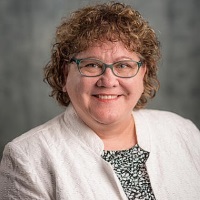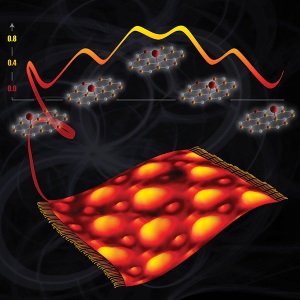
The Benefits of Society
by Janet Bryant

Even as the strains of that famous graduation tune are fading, summer students and recent graduates are joining our catalysis team. They bring bold ideas, strong opinions, and an energy that lights up our labs, offices, and meeting rooms. While here, they'll learn the ins and outs of conducting research, but they also learn what it takes to succeed. A vital part of that success is professional societies. Janet Bryant, who has served in numerous roles at Pacific Northwest National Laboratory and the American Chemical Society, offers her advice on what you can gain. Read more.
Be the Catalyst of Your Career

Because being part of a professional society is just one aspect of your career, we offer three steps to catalyze your success. For each step, we asked a diverse group of people to share their thoughts. We asked researchers with a few years of experience as well as those with a few decades. We asked the editor-in-chief of a popular catalysis journal. And we asked our newest administrator. See what they advise to manage cliques and to better communicate with sponsors (it involves climbing out of your favorite tree) as well as avoid the crowds covering too-well-trod research areas. We've even offered a way to share your thoughts for an upcoming follow-up article. Read more.
Science Short: The Fine Arts of Catalysis and Consensus
 Vigorous agreement doesn't stop insightful questions. And those questions are what lead to breakthroughs. A diverse team of experimentalists and theorists worked together for years to upend the long-held view of how oxygen atoms bind on metal-supported graphene sheets. By understanding oxygen binding with unprecedented detail, the team provided vital information needed for the bottom-up design of catalysts—as the oxygen atoms serve as the anchor points for reaction centers on graphene. Read more.
Vigorous agreement doesn't stop insightful questions. And those questions are what lead to breakthroughs. A diverse team of experimentalists and theorists worked together for years to upend the long-held view of how oxygen atoms bind on metal-supported graphene sheets. By understanding oxygen binding with unprecedented detail, the team provided vital information needed for the bottom-up design of catalysts—as the oxygen atoms serve as the anchor points for reaction centers on graphene. Read more.
April 2018
Catalysis News
Janos Szanyi and Feng Gao Share Their Views in Nature Catalysis. In an invited "News and Views" article, they wrote about the selective catalytic reduction of NOx, a critical reaction to reduce automotive exhaust emissions. The team was invited because of their expertise in surface chemistry and catalysis. Read more.
Grant Johnson Co-Organizes Mesilla Chemistry Workshop. The three-day event brought together experts from five countries to share insights about connecting theory and experiment in catalysis research. Johnson and co-organizer De-en Jiang spent more than eight months working on it with Bill Hase, who oversees the annual event. Read more.
Methane Goes Out With Carbon Dioxide, But There's a Catch. A new discovery as to how and why connections form between molecules and surfaces offers insights into interactions that matter across scientific disciplines and industry. This work elucidates structure-reactivity relationships of solid and molecular catalysts, including zeolites. Read more.
Quarterbacking Catalysts by Positioning Atoms. Taking advantage of basic research about the precise location of oxygen atoms on graphene lets scientists build up model catalysts that can be faster and more efficient. Read more.
Getting the Catalytic Details. Scientists now have an understanding of how the catalytic activity, mechanism, and reaction pathways for the alkylation of phenol with cyclohexanol depend on three factors. These factors are the concentration and strength of acid sites, the steric constraints for the reaction, and the identity of the alkylating agent. Read more.
Interdisciplinary teams at Pacific Northwest National Laboratory address many of America's most pressing issues in energy, the environment and national security through advances in basic and applied science. Founded in 1965, PNNL employs 4,400 staff and has an annual budget of nearly $1 billion. It is managed by Battelle for the U.S. Department of Energy's Office of Science. As the single largest supporter of basic research in the physical sciences in the United States, the Office of Science is working to address some of the most pressing challenges of our time. For more information on PNNL, visit the PNNL News Center, or follow PNNL on Facebook, Google+, LinkedIn and Twitter.
EMSL, the Environmental Molecular Sciences Laboratory, is a DOE Office of Science user facility. Located at Pacific Northwest National Laboratory in Richland, Wash., EMSL offers an open, collaborative environment for scientific discovery to researchers around the world. Its integrated computational and experimental resources enable researchers to realize important scientific insights and create new technologies.
If you have feedback – ideas, suggestions or questions – about IIC's Transformations, please contact Kristin Manke.